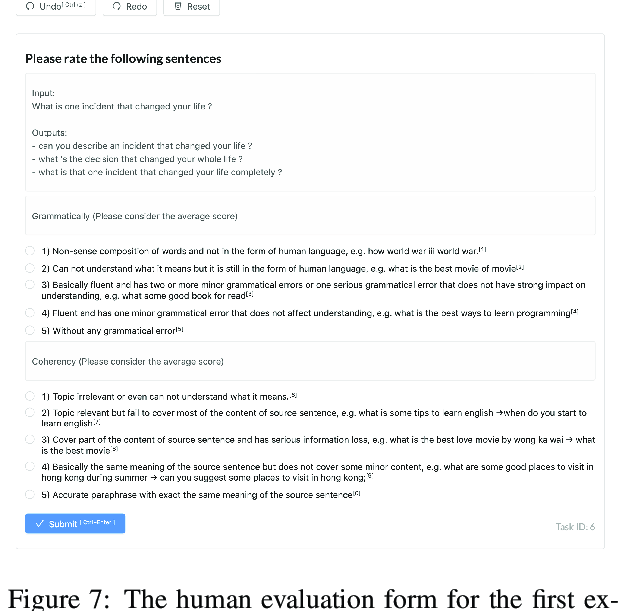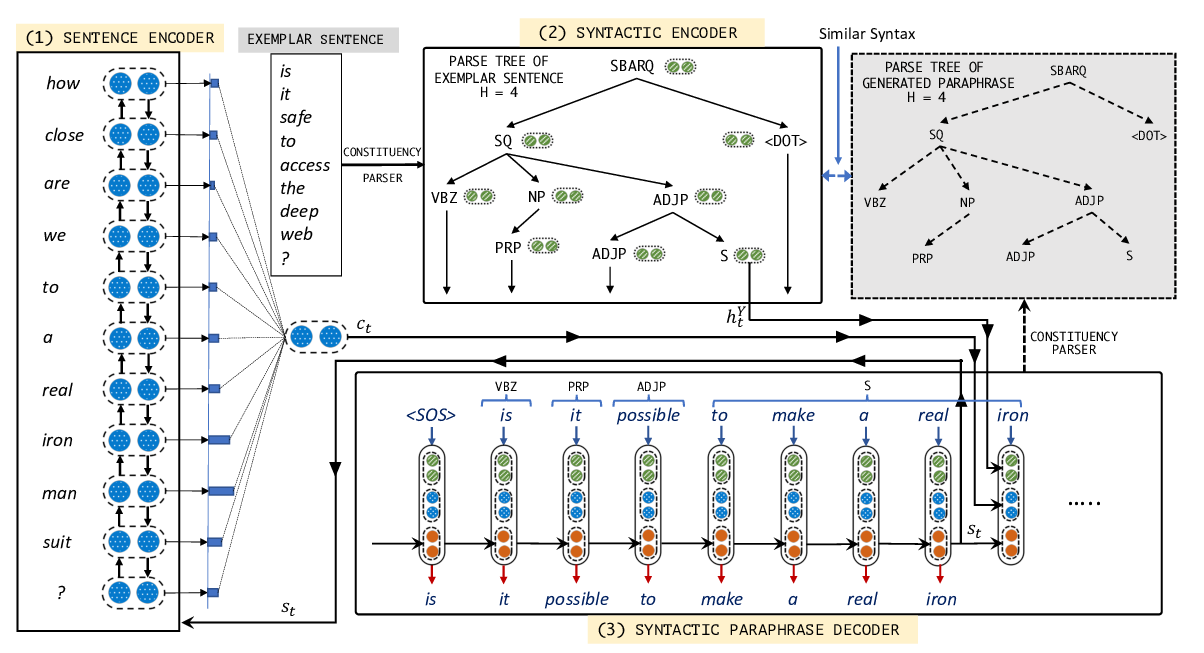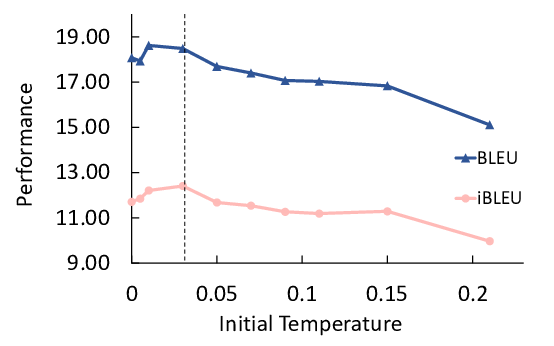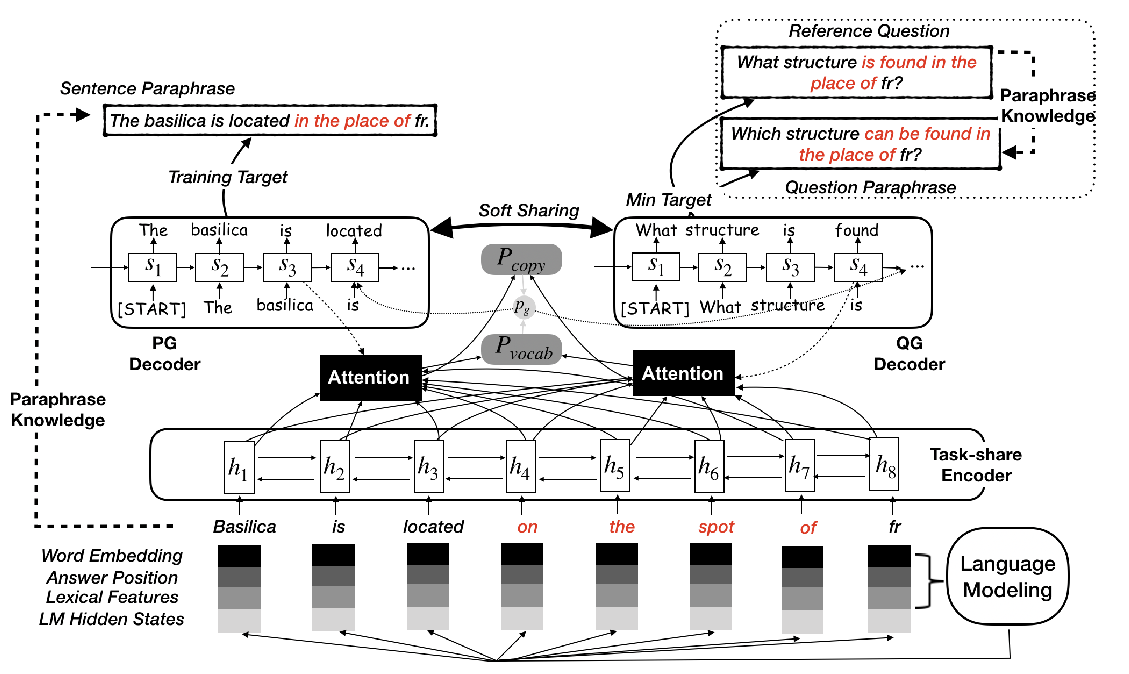Neural Syntactic Preordering for Controlled Paraphrase Generation
Tanya Goyal, Greg Durrett
Generation Long Paper
Session 1A: Jul 6
(05:00-06:00 GMT)

Session 4B: Jul 6
(18:00-19:00 GMT)

Abstract:
Paraphrasing natural language sentences is a multifaceted process: it might involve replacing individual words or short phrases, local rearrangement of content, or high-level restructuring like topicalization or passivization. Past approaches struggle to cover this space of paraphrase possibilities in an interpretable manner. Our work, inspired by pre-ordering literature in machine translation, uses syntactic transformations to softly "reorder'' the source sentence and guide our neural paraphrasing model. First, given an input sentence, we derive a set of feasible syntactic rearrangements using an encoder-decoder model. This model operates over a partially lexical, partially syntactic view of the sentence and can reorder big chunks. Next, we use each proposed rearrangement to produce a sequence of position embeddings, which encourages our final encoder-decoder paraphrase model to attend to the source words in a particular order. Our evaluation, both automatic and human, shows that the proposed system retains the quality of the baseline approaches while giving a substantial increase in the diversity of the generated paraphrases.
You can open the
pre-recorded video
in a separate window.
NOTE: The SlidesLive video may display a random order of the authors.
The correct author list is shown at the top of this webpage.
Similar Papers
Paraphrase Generation by Learning How to Edit from Samples
Amirhossein Kazemnejad, Mohammadreza Salehi, Mahdieh Soleymani Baghshah,

Syntax-guided Controlled Generation of Paraphrases
Ashutosh Kumar, Kabir Ahuja, Raghuram Vadapalli, Partha Talukdar,

Unsupervised Paraphrasing by Simulated Annealing
Xianggen Liu, Lili Mou, Fandong Meng, Hao Zhou, Jie Zhou, Sen Song,

